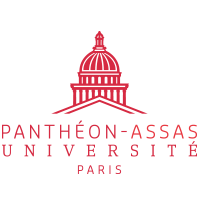Marlies Whitehouse
Summary
Ethics and finance seem to be incommensurable: almost every day are there news about unruly financial practices, tax evasion, and market manipulations. The complex interplay and interdependence between multitudes of stakeholders make it difficult to understand which parties and factors influence ethical behavior in the domain of finance. Moreover, vastly different levels of knowledge regarding financial principles and standards impede a common base for assessing ethical behavior.
This is why behaving ethically in financial communication requires the knowledge of the underlying rules, principles, and mechanisms: Only if stakeholders understand what consequences their actions and behavior have, can they assess whether they act ethically or not in relation to these rules. In the context of widely accepted ethical rules, such behavior includes, e.g., communicating in agreement with the stock market law, investing in ethically sound projects and instruments, and setting up sustainable investment plans for the current and future wealth.
Key for such knowledge-based ethical behavior in the financial domain is financial literacy, “the knowledge and understanding of financial concepts and risks, and the skills to make effective decisions across a range of financial contexts to improve the financial well-being of individuals and society, and to enable participation in economic life” (OECD, 2014). However, according to studies of OECD, a majority of society-at-large lacks financial literacy and cannot answer simple questions such as what the main differences are between shares and bonds or how cashflow is defined.
This is even more problematic as text products in financial communication do not fulfill their requirement to translate between experts and laypersons. In the case of financial analysts, ongoing cost cutting measures, tough competition with peers, and missing language awareness lead to a neglection of intra-lingual translation. In the case of financial journalists, marginal financial education, questionable quoting practices, and growing time pressure often result in texts that offer no value added to society-at-large.
Against this backdrop, my presentation will explore the interplay and the tension between ethical behavior, society-at-large’s financial literacy, and text products in financial communication. As a review of the state-of-the-art research reveals, both the stakeholders in the financial community as cross-domain translators and their texts are widely under-researched. There are no contextual studies, informed by both theoretical and practical knowledge, that provide an in-depth analysis of cross-domain translation issues within the financial community with respect to the addressees’ financial literacy. This is the gap that my research on written communication in financial communication aims to close.
In the presentation, I define the key concepts of financial literacy, language awareness, and ethics in finance (part 1). Based on a long-term qualitative corpus (part 2), I use pragmatic text analysis to explain how the lack of intra-lingual and cross-domain translation affects stakeholders and how this impacts ethics in financial communication (part 3). The results suggest that texts in financial community bear the risk of partial communicative failure, which impedes the target readers to identify non-ethical behavior and to act ethically themselves (part 4). I conclude by explaining measures that can improve the communicative potential of financial text products and discussing actions that can lead to more ethics in financial communication (part 5).
Our guest speaker
 Marlies Whitehouse is Research Associate at Zurich University of Applied Sciences, Treasurer of the International Association of Applied Linguistics AILA, and Associate Editor of the International Journal of Business Communication IJBC. She investigates text production and text reception with focus on inter-cultural, cross-domain, and intra-lingual aspects at the intersections of financial journalism, organizational communication and financial analysis. She has more than 20 years of professional experience in the financial sector.
Marlies Whitehouse is Research Associate at Zurich University of Applied Sciences, Treasurer of the International Association of Applied Linguistics AILA, and Associate Editor of the International Journal of Business Communication IJBC. She investigates text production and text reception with focus on inter-cultural, cross-domain, and intra-lingual aspects at the intersections of financial journalism, organizational communication and financial analysis. She has more than 20 years of professional experience in the financial sector.
